Ever since I bought my Mustang, I have been gradually growing loyal to the brand. I’m not sure why. I like a lot of different cars and never felt like picking a camp, but I guess when you buy a car, you start to have to defend its honour (and your decision) whenever someone takes a stab at it. For someone who is so into cars, I think only one of two things can happen: you are either convinced of what “foes” claim and start to regret your decision, or you find more conviction as you defend your decision and love the car even more. Count me among the latter and, needless to say, I was properly excited when I found out about the updates Ford is bringing to the 2018 Mustang.
For starters, the Mustang finally (probably.. hopefully)
will get its horsepower mojo back. When Ford unleashed its 5.0 litre Coyotes to prey on the competition circa 2010, it was basically
undisputed. The Camaro SS was usually slower in tests. You couldn’t say
Challenger R/T in the same breath; you had to go up to the mighty SRT8 to
compete, and even that couldn’t stand its ground until Mopar minions bestowed
the 392 (6.4 litre) V8 upon the Challenger that it was really competitive and it
wasn’t until you got into serious lose-your-license speeds that the Challenger
hp advantage started to show. Otherwise, its weight disadvantage let it down. GT500 vs ZL1? Well, we all know how that went..
Chevy debuted the 570 hp Camaro ZL1, but before it had any chance to be proud,
Ford unleaded the 663 hp GT500. But all that changed with the
new S550 Mustang..
The GT500 went the way of its S197 platform.. The 5.0 litre
V8 made a little more hp but not enough to make up for the weight gain, making
the new one a little slower than the old S197. To make matter worse, the new
Camaro came out with more hp AND less weight. The GT wasn't the only issue. Ford neutered its V6, which used
to be easily quicker than the Camaro and Challenger V6’s. The EcoBoost
barely kept up with a last generation S197 V6. If hp and speed were the reason
you wanted a new pony car but you weren’t loyal to a brand and you didn’t care
too much for modifying, the Camaro was calling your number (assuming you could put up with the sight lines, which aren't as bad as people make them out to be, but still seriously compromised). You can read my comparison of a 2016 Camaro SS vs 2016 Mustang GT here. Of course, there's a lot more to buying a car than horsepower and acceleration numbers, but they are very important to a lot of buyers.
You might say: BUT you are forgetting the Shelby GT350, you idiot!
Why aren’t you talking about that?? Sure, it’s a fantastic thing. I love the
GT350. There is a local dealer that has a few (yes, a few) new ones and every
time we drive by, I just want to drive in and stare at them. Trouble
is: it’s quite a few grand more than a Camaro SS, and A LOT more if you factor
in Camaro discounts and GT350 markups. The gap is even bigger compared to a
Mustang GT because that is cheaper than a Camaro SS to start with, which is
much cheaper than a GT350. So if you were Mustang loyal, you had a very
sizeable gap between the Mustang GT and the Shelby GT350. You could tap into
the Ford Performance parts catalogue, but those reduce powertrain warranty from 5 years to 3 years, and make
the car basically as expensive as a Camaro SS, which handles better and has a
better warranty. It wasn’t the best solution, but it may have been the only
one. However, it looks like Ford is looking to light some fire under the class
again..
Fire, let’s take a moment to mourn the death of the 3.7
litre V6.. Ok, moment is over. Don’t get me wrong, I was a big fan of it and I
always thought it punched above its weight but it was long overdue for an update.
An update that Ford didn’t want to provide because of its EcoBoost-infested
vision of the future. Might as well let it die in peace. Speaking of the
EcoBoost, it's getting more torque with an overboost function, although Ford isn't saying how much. People have been tuning them with great results so we all know it has more potential. It'll be interesting to see how much difference it makes, but Ford says it was substantial enough to warrant a transmission upgrade. Sound good? You bet! Hopefully, it's not just marketing talk.
But the real treat is the V8, which will finally get direct injection but will retain port injection, overcoming fueling issues at high rpm and valve fouling associated with direct injection-only engines. Direct Injection allows for better atomization resulting in better combustion, and better power as a result. Moreover, that results in a cooling effect which, when combined with better control on fuel delivery, allows for higher compression ratio, again resulting in more power. The end result? Ford won’t say yet, but I think it will come real close to the Camaro’s hp (at least). I’m hoping for 470 hp, but that may be too optimistic. And better yet, Ford didn’t just focus on power.
But the real treat is the V8, which will finally get direct injection but will retain port injection, overcoming fueling issues at high rpm and valve fouling associated with direct injection-only engines. Direct Injection allows for better atomization resulting in better combustion, and better power as a result. Moreover, that results in a cooling effect which, when combined with better control on fuel delivery, allows for higher compression ratio, again resulting in more power. The end result? Ford won’t say yet, but I think it will come real close to the Camaro’s hp (at least). I’m hoping for 470 hp, but that may be too optimistic. And better yet, Ford didn’t just focus on power.
The handling is addressed too, with a retuned
suspension and stiffened chassis, plus the option of magnetic shocks across the board, including the EcoBoost! Ford says the base suspension now is as good as the Performance Pack. But the highlight of
all is, IMO, is the tires. The Michelin Pilot Sport 4 tires are the successor to the excellent
Pilot Super Sport. One of the best street/track tires available in the last few
years IMO. There were plenty of tires that were much stickier, better in the
wet, longer lasting, or forgiving but none could match the balance the PSS
provided between of all these criteria and more. The new one can only be
better. This is the area I care about the most, as I pointed out in the review I posted above, the Mustang became more grown up than the last generation while the Camaro became more playful. As a car guy inflicted with the track bug, I couldn't be happier that Ford is improving the handling and overall capability.
And if you thought that was all, you’re wrong! Things just
keep getting better. It may be trivial, but I wasn’t a fan of the front end at
all since it debuted. It wasn’t ugly by any means, but it was too much
corporate Ford and not nearly enough Mustang. The headlights were the worst
offenders and I’m VERY happy to see them GONE. The new headlights are more of
an evolution of the S197 headlights that are made “squintier” and pulled into
the fender. They are still not as good as the S197 IMO, but they look much more
modern and sinister, yet far more muscular the very-nearly-identical Fusion
headlights that are available now. Better still, the upgrades to the front fascia make the car more aerodynamic, reducing drag and lift at higher speeds. Hard to complain. Out back, the GT switches to quad exhausts and Ford will offer electronically controlled exhaust valves to vary tone, something I liked a lot about the Camaro SS in my comparison posted above.
The end result is a Mustang that looks better, handles
better, goes faster, and still packs a V8. What is there to complain about? If
I had to complain about something, it would be that Ford made the new Mustang
so much better that I really want one now..





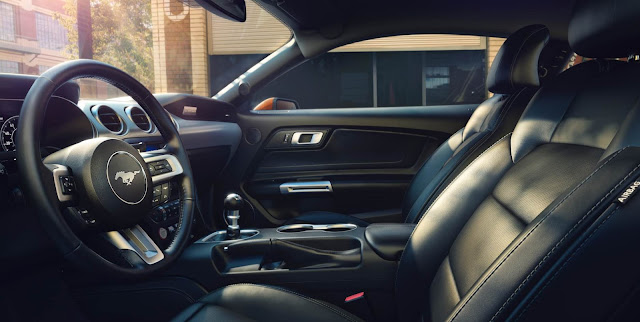



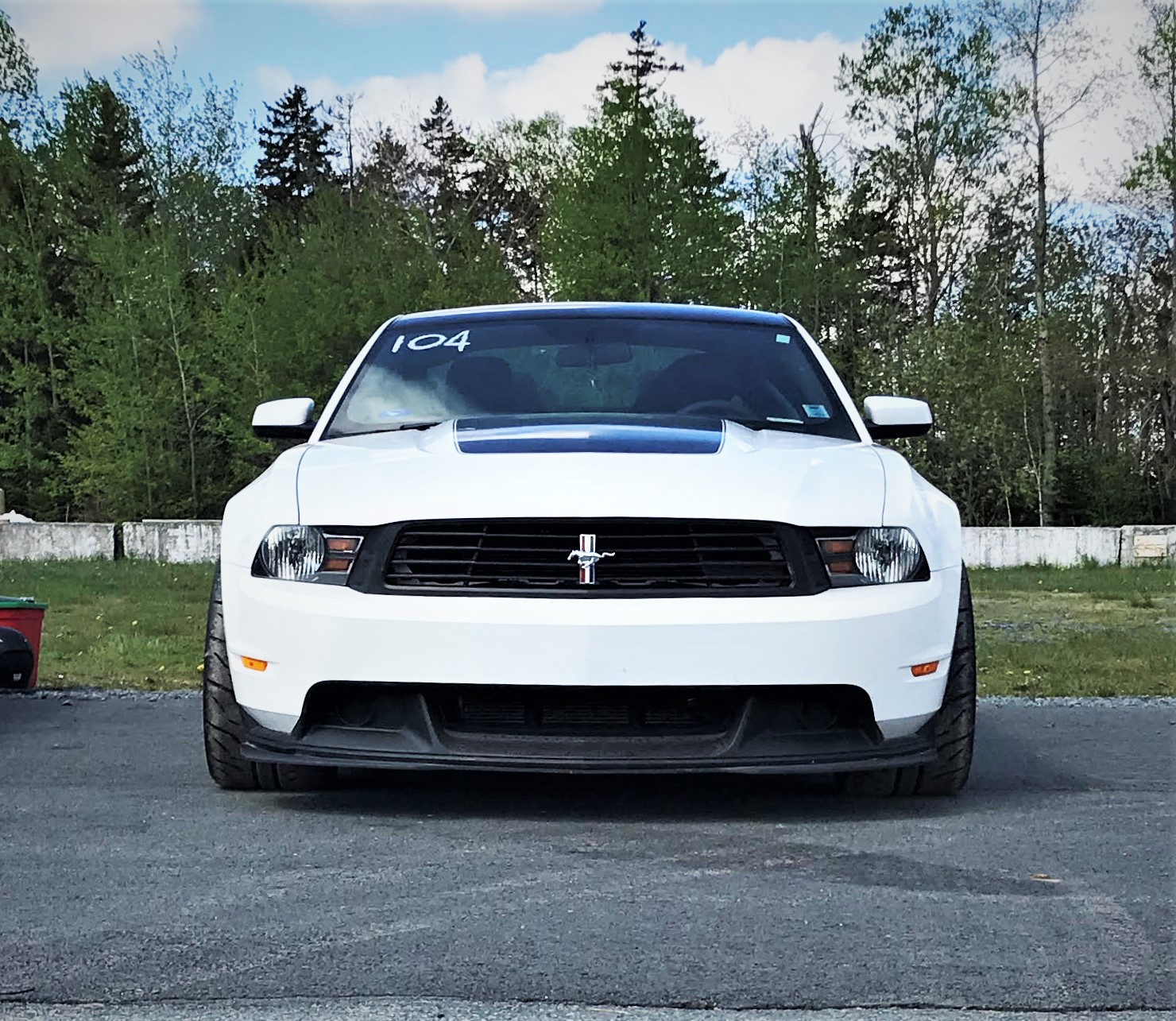



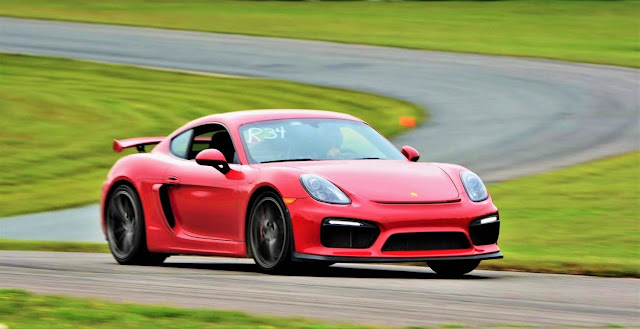
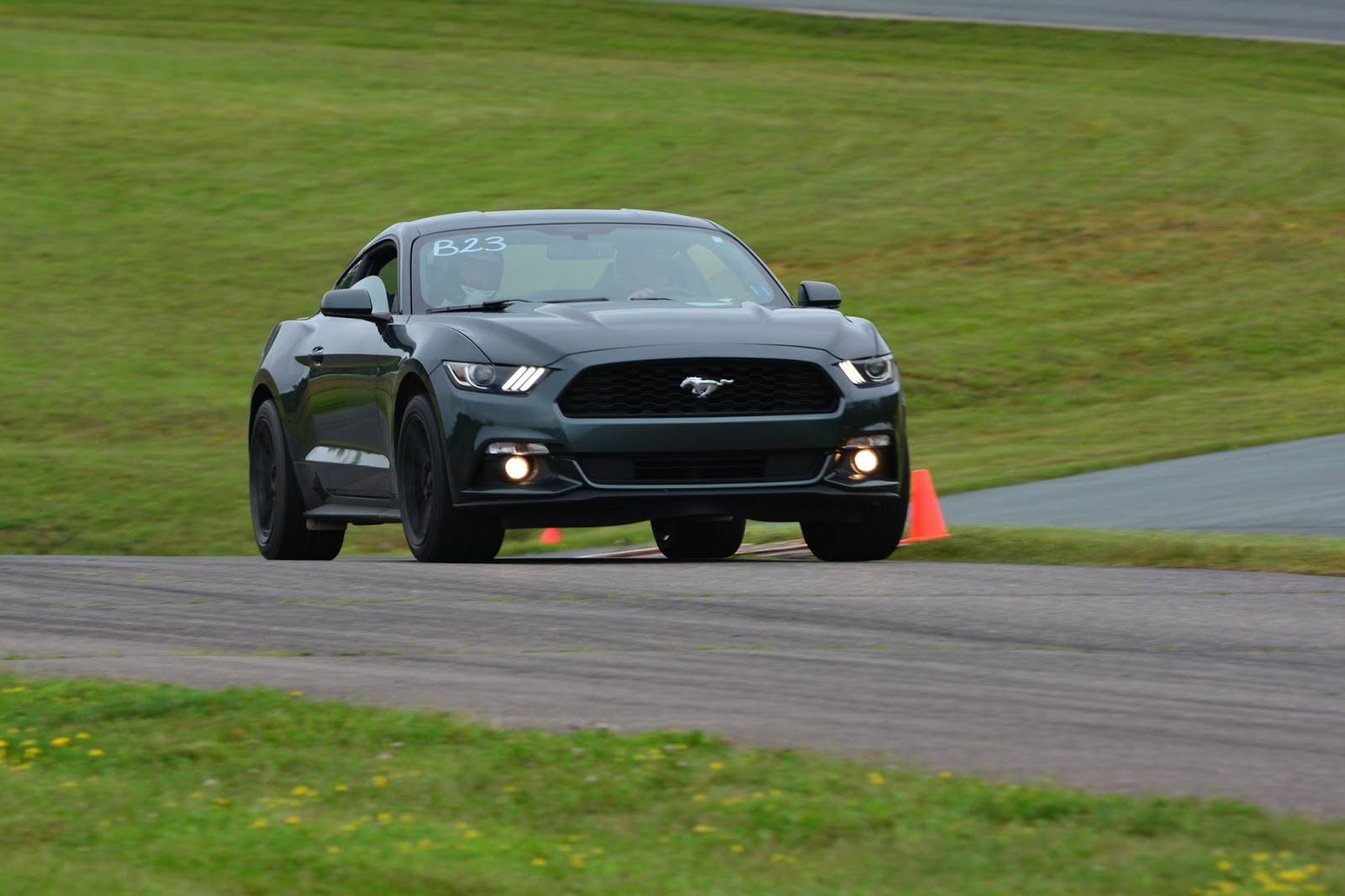
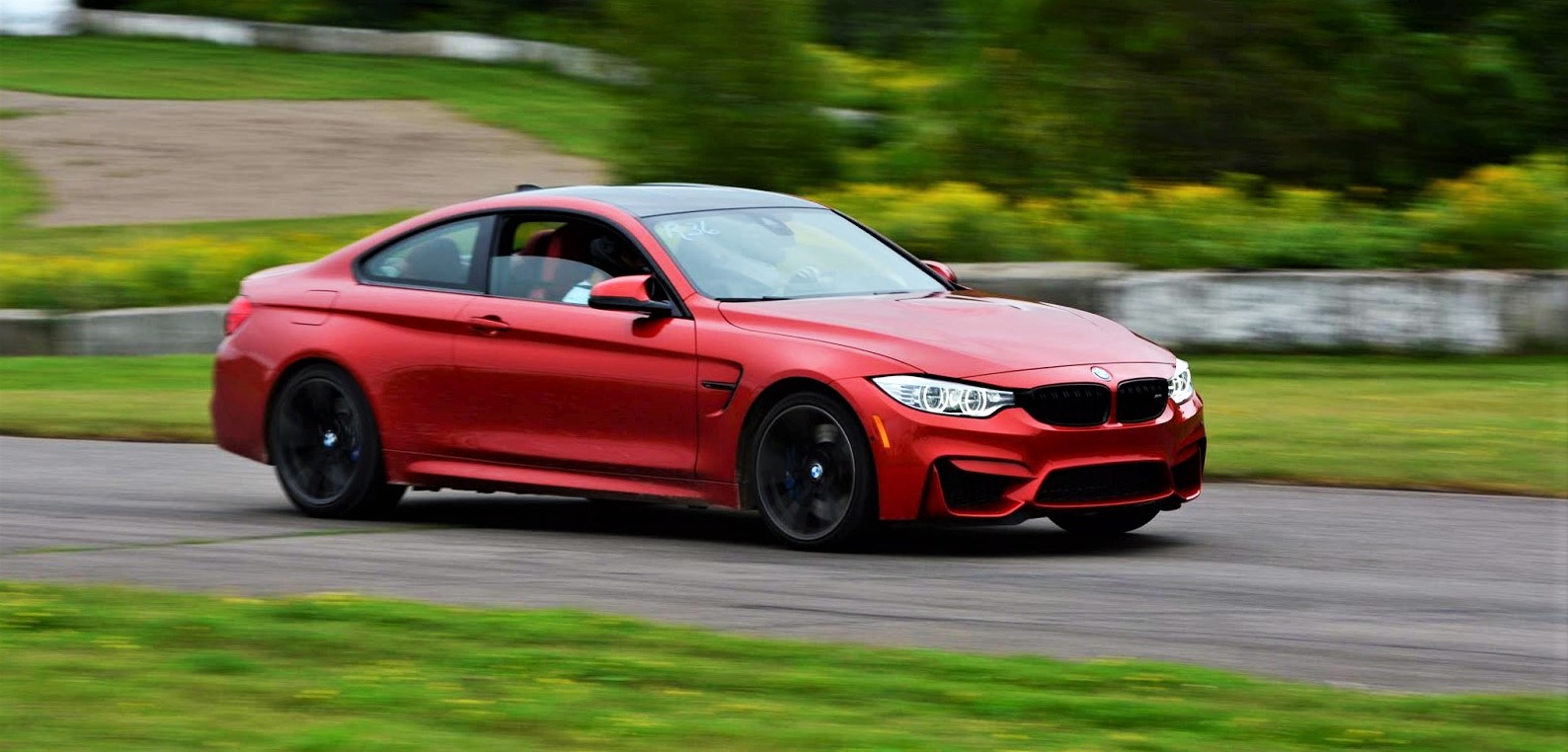

Comments
Post a Comment